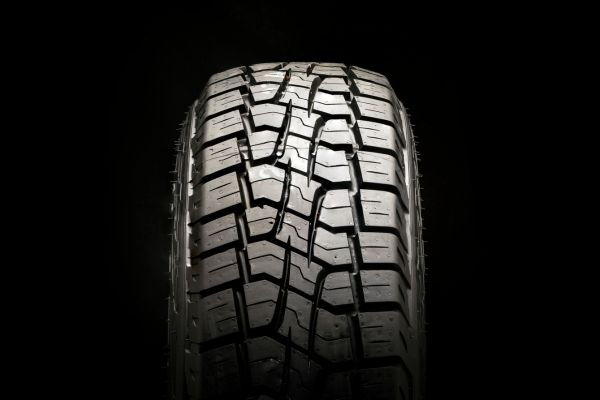If you’ve ever gone tire shopping, you know the options can feel overwhelming. Summer tires, winter tires, touring tires… and then, the popular choice—the best all-season tires. These are the ones people buy when they want one set of tires that can do it all without having to swap them every season. But here’s the thing: not all all-season tires are created equal. Some lean more toward winter handling, while others shine on dry roads and in rain. So, how do you find the perfect set for your ride? Let’s break it down in a way that makes sense.
What Makes All-Season Tires Special
All-season tires are kind of like the Swiss Army knife of the tire world. They’re designed to provide balanced performance in a variety of conditions—rain, dry pavement, and light snow. Instead of excelling in one area, they aim to give you solid, dependable performance year-round. Sure, if you live in a place that gets brutal winters, you’ll probably still want dedicated winter tires. But for most drivers, especially those in moderate climates, the best all-season tires are more than enough.
Why All-Season Tires Are So Popular
Let’s be real: convenience plays a huge role. Nobody wants to schedule seasonal tire changes twice a year if they don’t have to. With all-season tires, you just put them on and go. You don’t have to worry about storing a second set or spending extra money on swaps. Plus, manufacturers know this, which is why they keep improving tread compounds and designs. The result? Modern all-season tires last longer, grip better, and give you a quieter, smoother ride than older models ever did.
Performance You Can Actually Feel
Here’s the thing—tires make a bigger difference to your driving experience than most people realize. A fresh set of the best all-season tires can transform how your car feels on the road. Better grip in the rain means fewer heart-stopping hydroplane moments. Improved tread patterns mean a quieter cabin, even on the highway. And fuel efficiency? Yep, certain all-season tires are designed to help with that too. You’re literally saving money every mile you drive just by rolling on the right rubber.
What to Look for in the Best All-Season Tires
When shopping for tires, it’s easy to get lost in brand names and marketing fluff. But the truth is, there are a few simple things you should focus on.
Tread Life
Nobody wants to buy tires every other year. The best all-season tires typically come with warranties ranging from 60,000 to 80,000 miles. If you do a lot of highway driving, that extra durability matters.
Wet and Dry Traction
Let’s be honest—rain is where a lot of tires fail. A good all-season tire should cut through standing water and grip the road without slipping. At the same time, it shouldn’t feel squishy on dry pavement.
Snow Capability
All-season doesn’t mean “winter master.” But if you get occasional snowfalls, look for tires with the M+S (Mud and Snow) rating or the mountain snowflake symbol. They won’t replace snow tires, but they’ll get you through light flurries safely.
Comfort and Noise
Ever drive on a set of tires that sounded like a jet engine? Yeah, not fun. The best all-season tires are designed to minimize road noise and vibration, so your ride feels smooth and quiet.
Everyday Drivers vs. Enthusiasts
It’s worth pointing out that not everyone is looking for the same thing. Daily commuters want reliability, fuel economy, and comfort. Enthusiasts, on the other hand, might prioritize sharp handling and cornering grip. That’s why tire reviews can seem so mixed—what’s “best” really depends on your needs. For a family sedan, you’ll want long tread life and wet safety. For a sporty coupe, you’ll probably lean toward performance-focused all-season tires that hug the road a little tighter.
Are All-Season Tires Worth It?
This is the big question people ask. And honestly, for most drivers, the answer is yes. The best all-season tires strike a balance between practicality and performance. You don’t need to baby your car with seasonal swaps, and you don’t have to compromise on safety in everyday conditions. They’re the ultimate “set it and forget it” solution for people who just want reliable tires that last.
Common Myths About All-Season Tires
A lot of folks think “all-season” means “all-weather.” That’s not quite true. They can handle many conditions, but they’re not miracle workers. Here are a couple of quick clarifications:
- They’re not the same as winter tires. In freezing temps with heavy snow, all-seasons will harden up and lose grip.
- They don’t last forever. Even the best all-season tires wear down eventually, and once tread depth drops below safe levels, it’s time for replacements.
- They don’t fit every driving style. If you’re racing around corners or living in extreme climates, you’ll want specialized tires.
Choosing the Right Set for You
So how do you pick? Start with your climate. If you live somewhere with mild winters, all-seasons are perfect. If you’re in an area with heavy snowstorms, pair them with winter tires during the coldest months. Next, think about your driving style. Do you want comfort, or do you crave a sportier feel? Narrow it down from there, and you’ll find a set that feels like it was made for you.
The Bottom Line
At the end of the day, the best all-season tires give you peace of mind. You don’t have to stress about sudden rain showers, random cold snaps, or dry highways baking in the summer sun. They’re versatile, dependable, and built to handle the ups and downs of everyday driving. Sure, they won’t outperform dedicated summer or winter tires in extreme situations, but for the average driver, they’re the perfect balance. Think of them as your everyday companion on the road—always ready, always reliable, and always rolling you forward with confidence.





